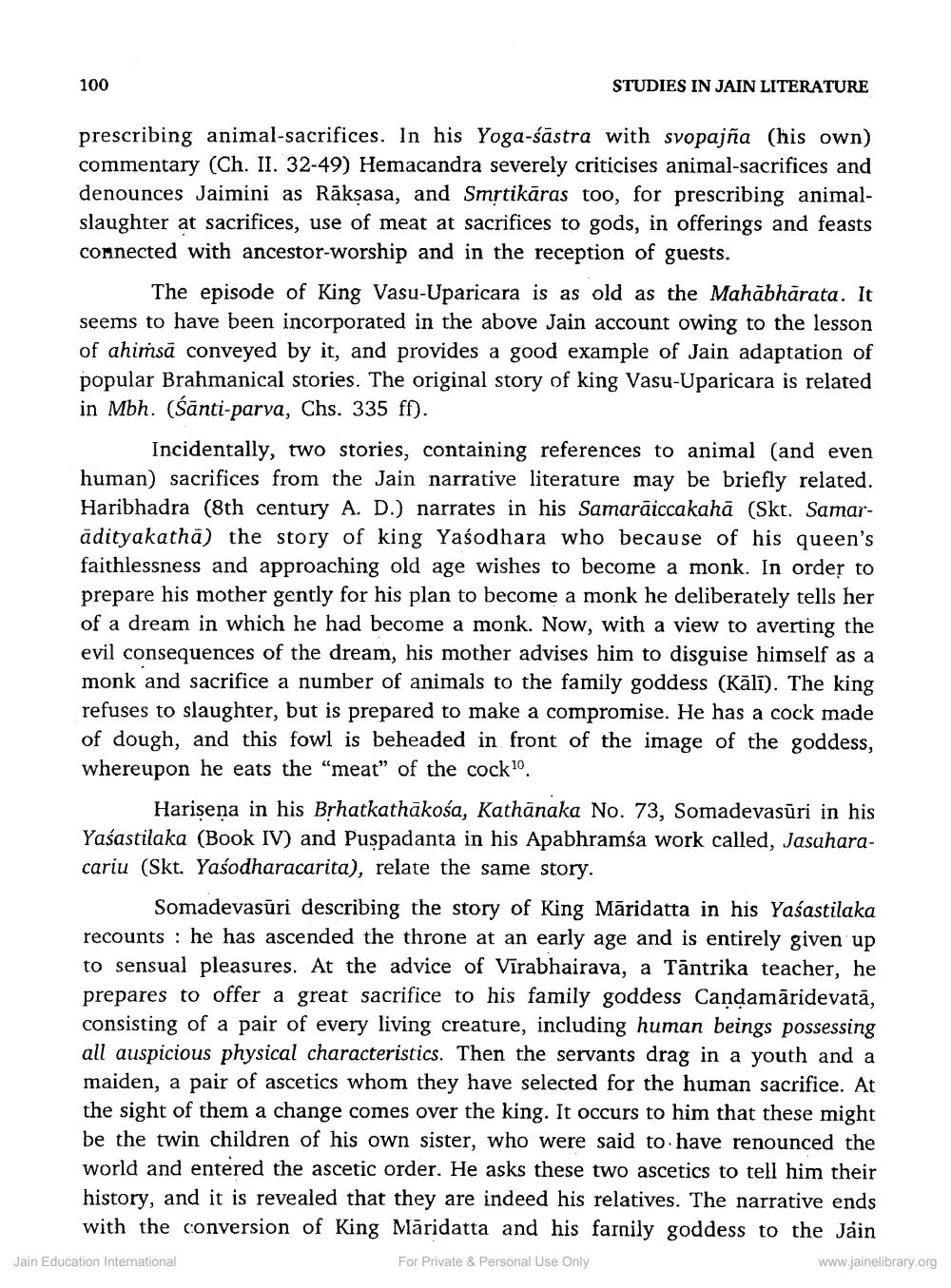________________ 100 STUDIES IN JAIN LITERATURE prescribing animal-sacrifices. In his Yoga-sastra with svopajna (his own) commentary (Ch. II. 32-49) Hemacandra severely criticises animal-sacrifices and denounces Jaimini as Raksasa, and Smrtikaras too, for prescribing animalslaughter at sacrifices, use of meat at sacrifices to gods, in offerings and feasts connected with ancestor-worship and in the reception of guests. The episode of King Vasu-Uparicara is as old as the Mahabharata. It seems to have been incorporated in the above Jain account owing to the lesson of ahimsa conveyed by it, and provides a good example of Jain adaptation of popular Brahmanical stories. The original story of king Vasu-Uparicara is related in Mbh. (santi-parva, Chs. 335 ff). Incidentally, two stories, containing references to animal (and even human) sacrifices from the Jain narrative literature may be briefly related. Haribhadra (8th century A. D.) narrates in his Samaraiccakaha (Skt. Samaradityakatha) the story of king Yasodhara who because of his queen's faithlessness and approaching old age wishes to become a monk. In order to prepare his mother gently for his plan to become a monk he deliberately tells her of a dream in which he had become a monk. Now, with a view to averting the evil consequences of the dream, his mother advises him to disguise himself as a monk and sacrifice a number of animals to the family goddess (Kali). The king refuses to slaughter, but is prepared to make a compromise. He has a cock made of dough, and this fowl is beheaded in front of the image of the goddess, whereupon he eats the "meat" of the cock 10. Harisena in his Brhatkathakosa, Kathanaka No. 73, Somadevasuri in his Yasastilaka (Book IV) and Puspadanta in his Apabhramsa work called, Jasaharacariu (Skt. Yasodharacarita), relate the same story. Somadevasuri describing the story of King Maridatta in his Yasastilaka recounts : he has ascended the throne at an early age and is entirely given up to sensual pleasures. At the advice of Virabhairava, a Tantrika teacher, he prepares to offer a great sacrifice to his family goddess Candamaridevata, consisting of a pair of every living creature, including human beings possessing all auspicious physical characteristics. Then the servants drag in a youth and a maiden, a pair of ascetics whom they have selected for the human sacrifice. At the sight of them a change comes over the king. It occurs to him that these might be the twin children of his own sister, who were said to have renounced the world and entered the ascetic order. He asks these two ascetics to tell him their history, and it is revealed that they are indeed his relatives. The narrative ends with the conversion of King Maridatta and his farnily goddess to the Jain Jain Education International For Private & Personal Use Only www.jainelibrary.org




